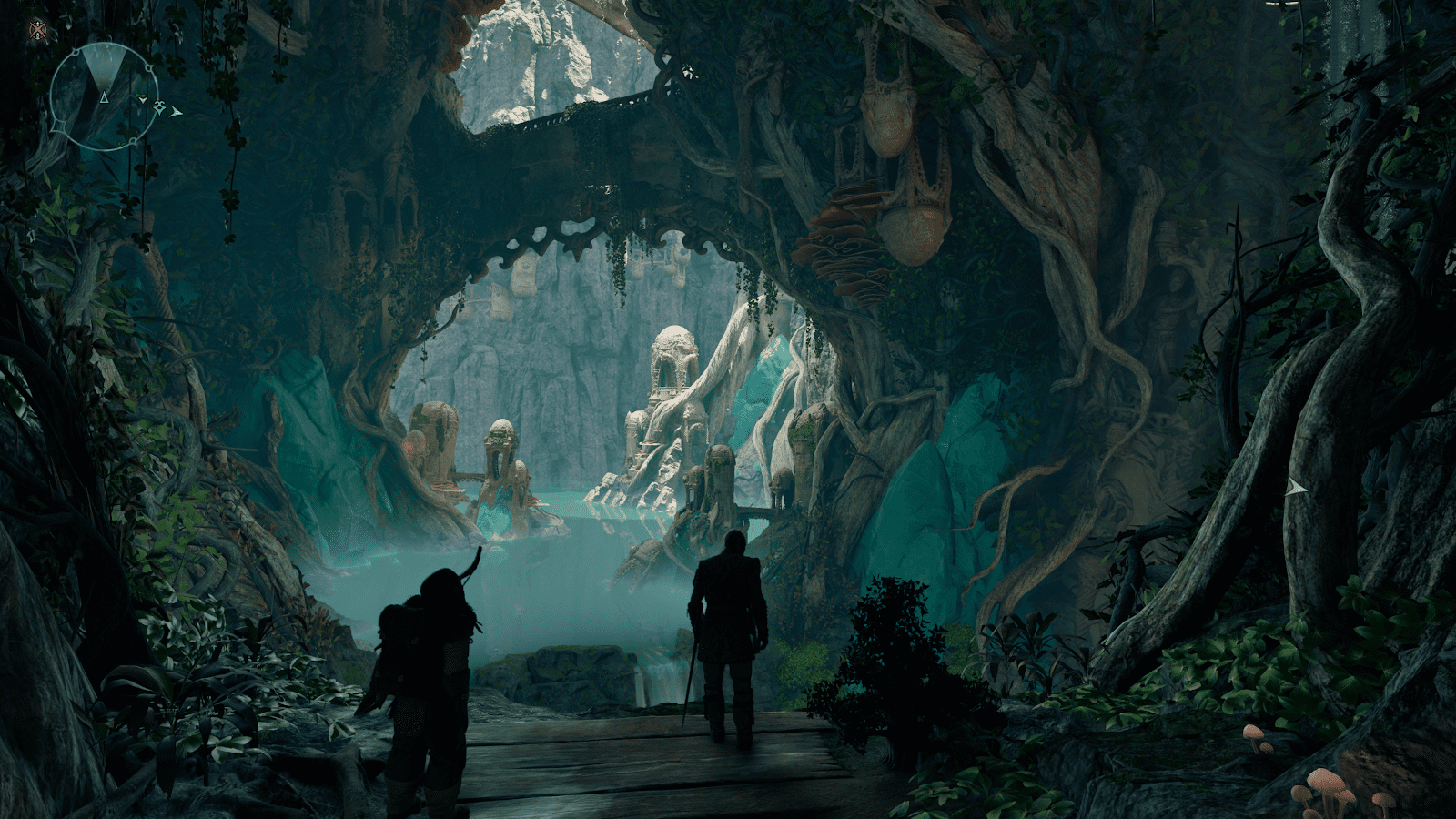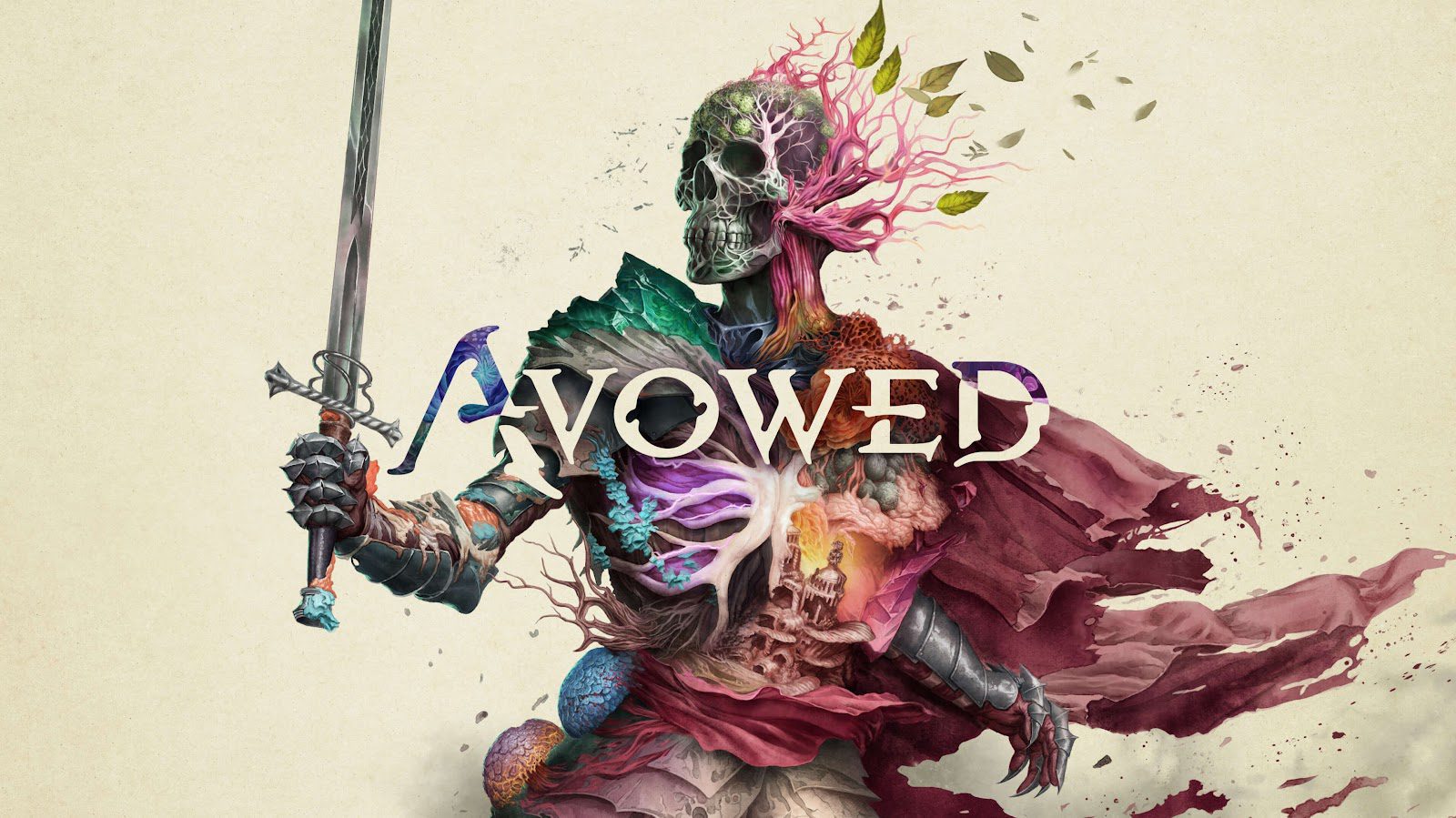
The Lord of the Rings is considered the pinnacle of fantasy storytelling, responsible for both reviving and reinventing the genre. Many Catholics respect Tolkien on a different level due to his devout faith – he himself said that The Lord of the Rings is a “fundamentally Catholic” work. This is interesting to me (firstly because I’m an unabashed Tolkien fan), but secondly because no religion is ever mentioned in it. Its cosmology is woven throughout, but without the posthumously published Silmarillion many would struggle to pick up on that.
Avowed, Obsidian’s latest game, takes a different approach. It uses fantasy to explore religion in an attempt to interrogate theological truths, and in so doing sheds light on what it means to have faith.
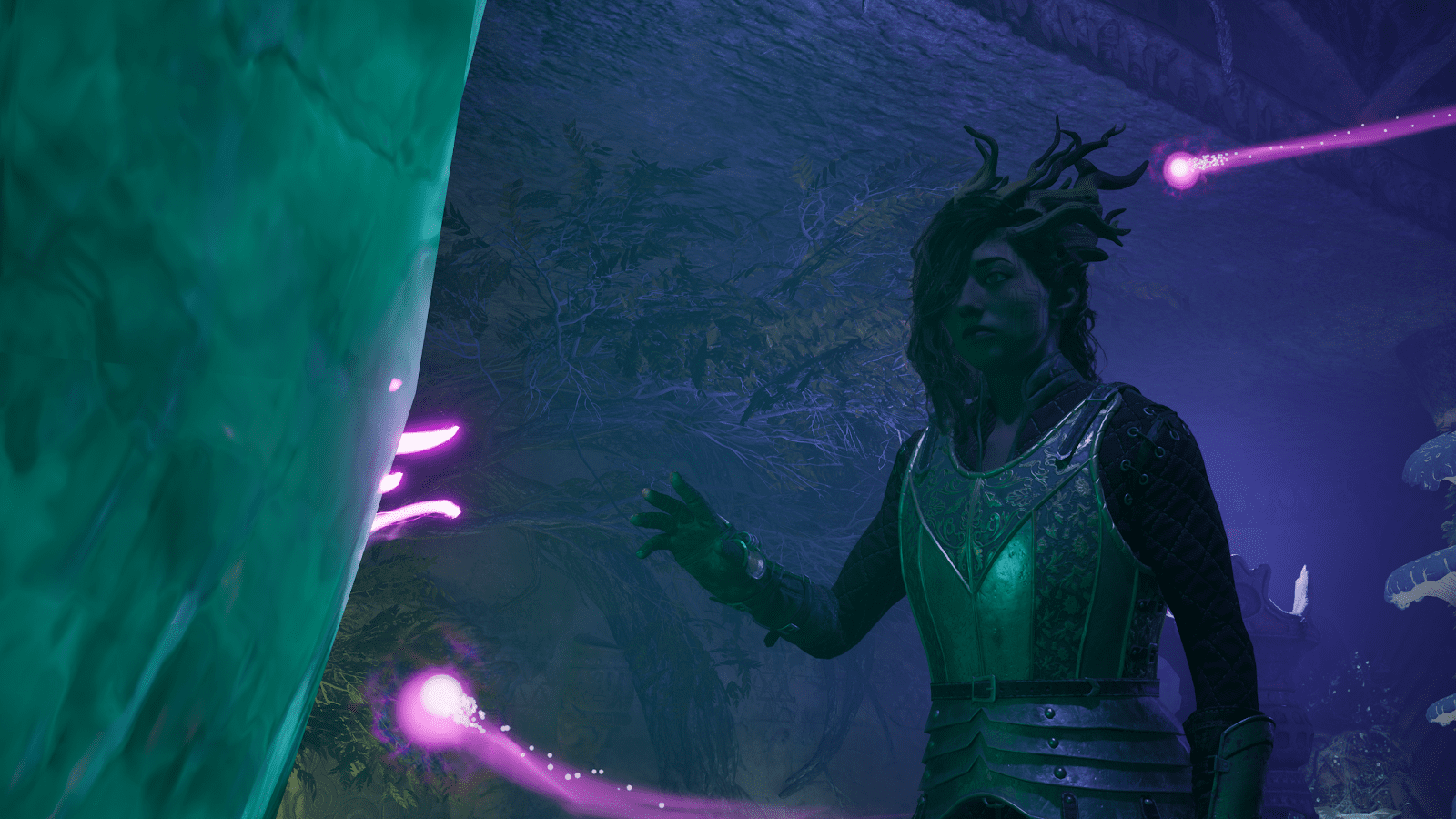
In Avowed, you are a godlike, someone who was graced by a god while in the womb. This has left incredibly visible marks on you, so all know you at a glance to be a servant of your god. The emperor of your country sends you to The Living Lands as an envoy, in hopes that relations can be established and a threat investigated. This threat is called the Dreamscourge, and is a plague affecting not the body, but the soul.
We’re already dripping with thematic potential for analysis here, but let’s get the barebones review done first. The lore is heavy in Avowed – there’s a lot of fantastic world-building here. But even a lot of fantastic lore can be too much to take in. Thankfully, much like they did in Pentiment, Obsidian employed a helpful glossary that appears during conversation. If you ever forgot Woedica or her 7 other names, you can hit the button and the glossary will explain who she is and what she does. This has the double effect of keeping lore accessible and making conversation more natural, as world-building doesn’t need to be shoehorned in.
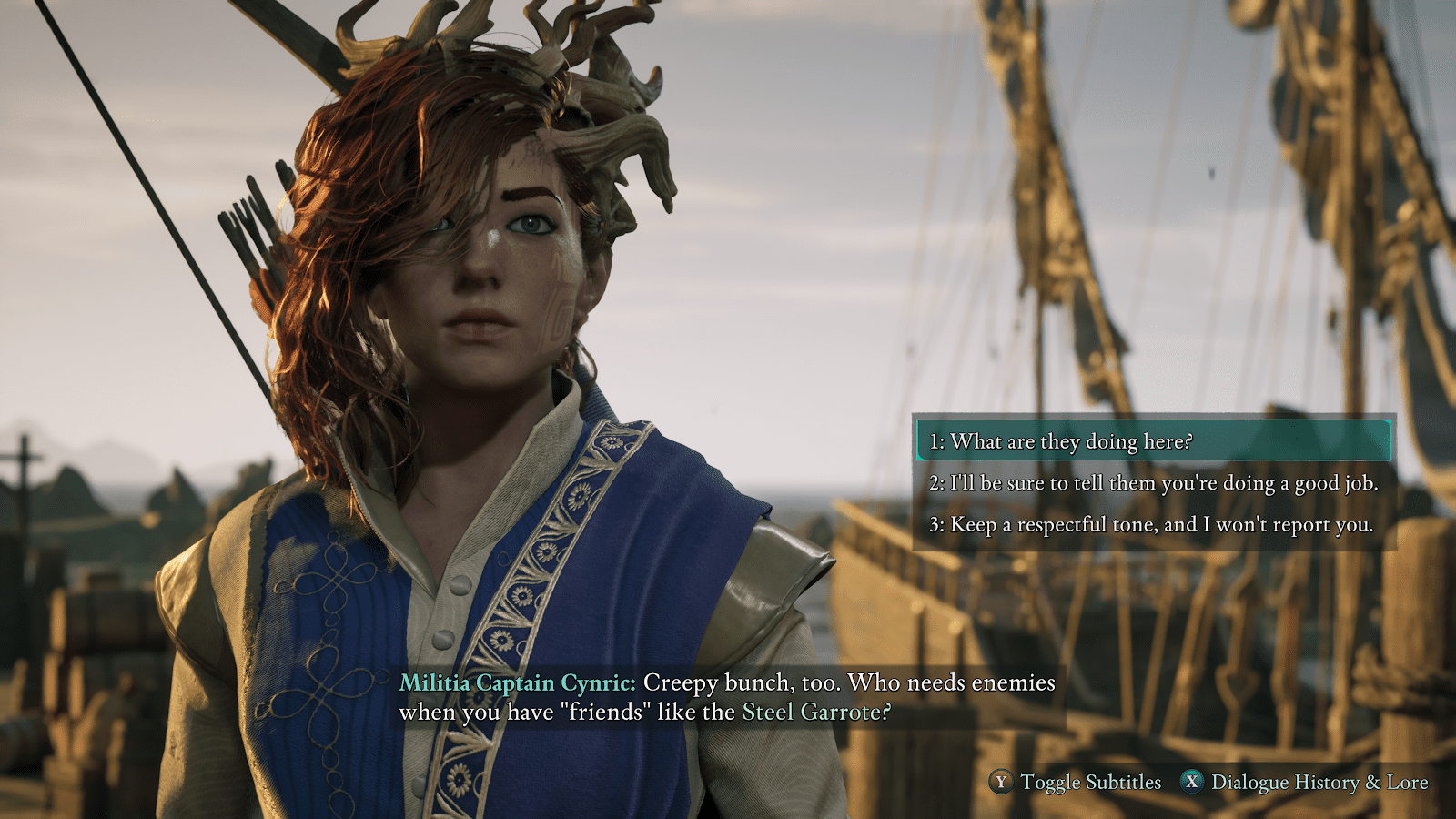
Those familiar with Skyrim will either lament or rejoice at the fact that there are so many books in this game. It’s another layer of optional world-building that helps make everything come more alive. But whether reading is your thing or not, Skyrim fans will greatly enjoy the gameplay. I myself was always frustrated at combat in Skyrim – all I was doing was swinging my weapon or shooting a bow. The illusion would drop and I’d feel like I was just mashing buttons instead of responding to a dynamic situation. This is not the case with Avowed. Dodges, charged attacks, magic and more all combine seamlessly into a kinetic whole. It doesn’t introduce much new mechanically, but it executes on well-established mechanics perfectly and keeps combat at a fast tempo.
The music never calls attention to itself. I wish it would. I miss Justin Bell, the composer from the Pillars of Eternity series from which Avowed sprung. His music has become synonymous with many to Dungeons and Dragons ever since Critical Role gained permission to use it for their show. His work is some of my favorite in recent gaming history – at its best it rivals Howard Shore’s score to the Lord of the Rings movies. For whatever reason, they went with a different composer for Avowed and so what we get is ambient and relaxing, but generic. There’s no motifs I can discern, or rousing music I can recall. Instrumentation remains the same almost entirely throughout. It’s all rather one-note, despite the Living Lands taking place across multiple disparate biomes. It’s disappointing to see when you know what could have been.
Though the musical writing is lacking, the writing elsewhere is so well done. Dialogue is realistic yet effortlessly articulate. It’s nice when someone can use the word ‘maundering’ in a conversation and it feel 100% natural. The companions also have a very naturalistic dialogue, which is good considering how much time you’ll likely spend with them. I wish Kai were a bit less quippy, as that aspect of him is sadly reminiscent of Marvel films, but even so he bests Marvel films by being a fully realized character whose deflectionary humor has a sensible reason. Each companion has good characterization and is enmeshed in the setting, relating to core parts of various plots.
The story itself reads like a 90’s fantasy novel in the best, most indescribable way. I’ll try to elaborate on that, but to be honest it’s just what the kids say are ‘vibes’. The best I can do is point to the lore – as already mentioned, there’s a copious amount of it that doesn’t deserve to be this good. And I guess underappreciated super-developed lore just feels like the 90’s to me. The story is riveting – I’m propelled forward to learn more and see what happens. But what excites me the most about the game is its earnest exploration of faith.
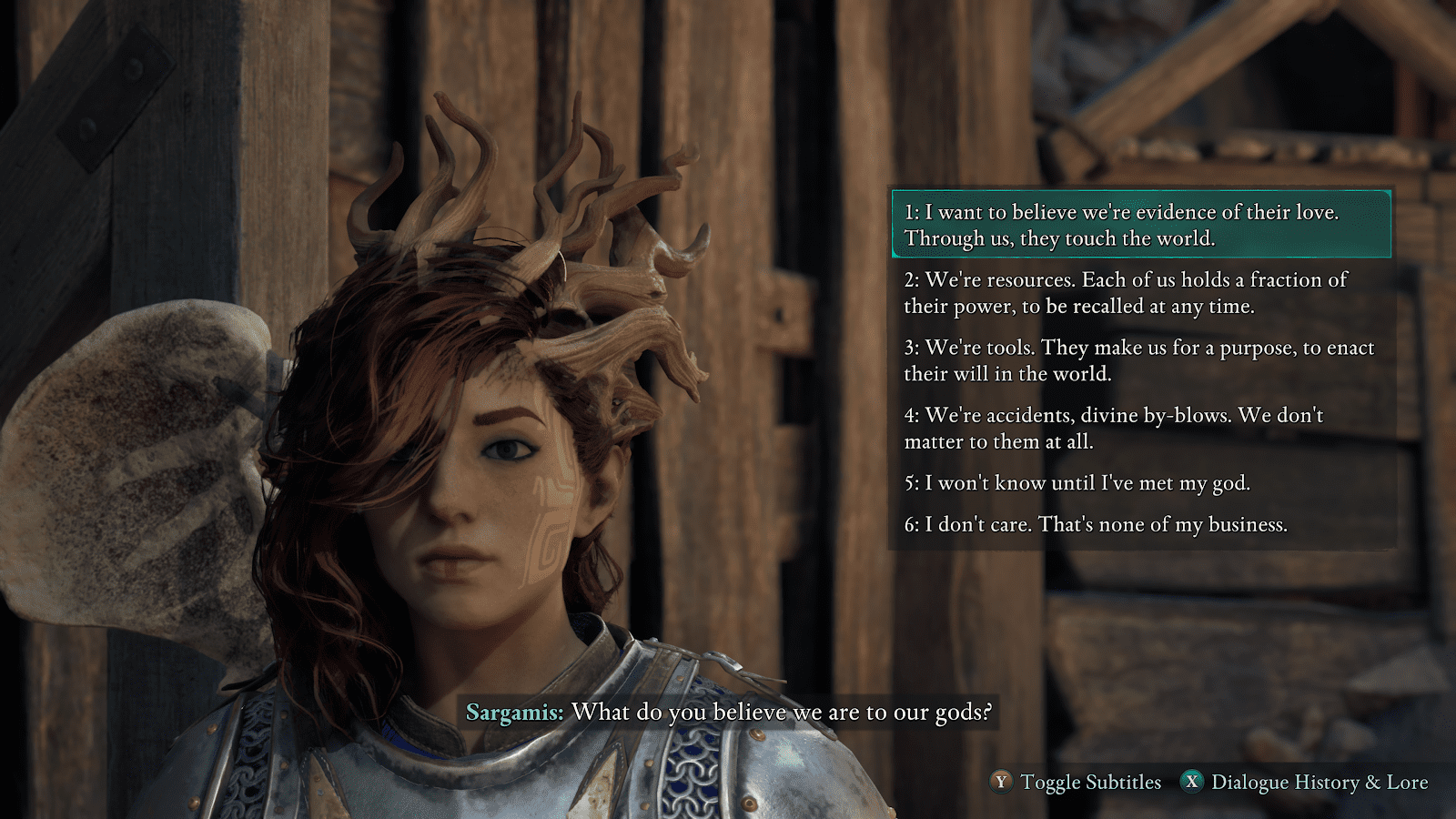
I respect Tolkien’s approach, and I think it works for Middle-Earth perfectly. But it has been so interesting seeing a fantasy world that entertains what the ramifications are for knowing and seeing your gods. It will be tough to translate for some in this (hopefully short) review due to the lore barrier, but I’ll do my best. Take for example some dialogue I heard from an assistant diplomat. He was describing one of the gods, Woedica, and he says he “appreciate[s] a god who makes you work for their grace. I don’t want anything given to me for free.” That’s a quick dialogue, but there’s much we can unpack from that! What the diplomat fails to understand about gifts is they are always freely given, and are never earned. Receiving something for work done is compensation, and receiving salvation for acts of mercy is pelagian: We don’t earn grace through anything we accomplish. What kind of relationship with your god is that? It is all a gift – acts of mercy simply flow from receiving that gift.
Moments like these are ubiquitous in Avowed. Digging down beneath it all, it feels like the writer is searching for God in Faerie, and through all the different characters is able to explore multiple avenues to God. This is what fantasy allows us to do. In Tolkien’s lecture On Fairy-Stories, he elaborates on many different functions of fantasy: it provides escape, it enlightens our primary world, and it consoles us – what is true there that truly matters can be true in our world too. In creating or reading these stories, we illumine our own lives by what they reveal. Avowed hasn’t found God yet – its gods are petty and unmerciful. But it feels, deep down, like it’s been written by people who want to know God.
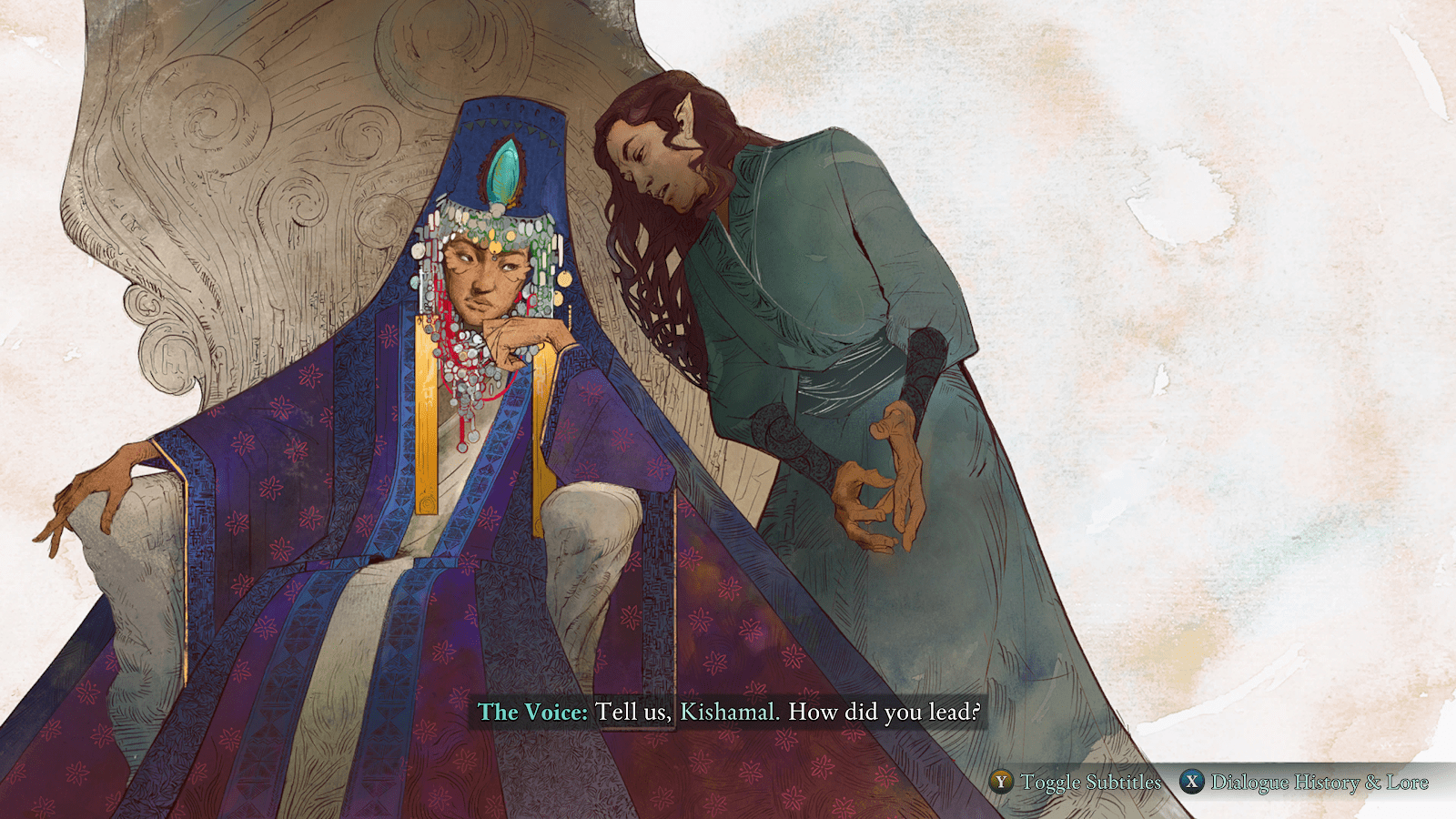
You can’t always say for sure what goes on in an author’s heart, but questions that bother them can show up (intentionally or subliminally) in their work. Some people reading this might doubt me, but there are themes on many levels relating to the search for God that are explicitly expounded on in Avowed: who am I? What am I to my god? What am I to do with the circumstances of my life? Knowing (or not knowing) all that, what is the best way to live my life? Avowed raises these questions and more, but instead of just begging the question, it earnestly seeks those answers. This is the beauty of fantasy; it allows us to explore secondary worlds so as to discover something new about our primary one. For all those asking these questions, I pray you find the answers.
Scoring: 90%
Art: 10/10
Gameplay: 9.5/10
Design: 10/10
Music: 6/10
Story & Writing: 9.5/10
Morality/Parental Warnings
Violence: there is your standard bloody violence in this. It’s not gratuitous but it is plentiful. A fair amount of situations can be resolved peacefully, which is always nice.
Language: There is adult language in this; it’s actually used sparingly in the first two acts of the game, to the point where I was surprised when I first heard it 30 hours in. Perhaps there was one earlier. Regardless, there’s not an egregious amount of language -it’s saved for moments of impact.
Lewdness: There is suggestive dialogue and books. Usually it’s left to subtext. There are bathhouses in game, and it’s clear they’re hinted at as suggestive, but in comparison to many games these ladies are modest. One quest has you picking up an illegal shipment for the bathhouse, which you then discover are contraceptive herbs. You can choose not to deliver them, or turn the contraband in, or deliver but admonish, or deliver and praise…and so on. This raises another point about Avowed – in a fair amount of quests, the situation turns, and you’ll have to make moral decisions on the fly. The game is very interested in what you choose to do in these moments, and gives you plenty of options for how to handle it. I can’t help but respect it more, not only for not shying away from these moments, but also because it doesn’t choose our moral actions for us.
